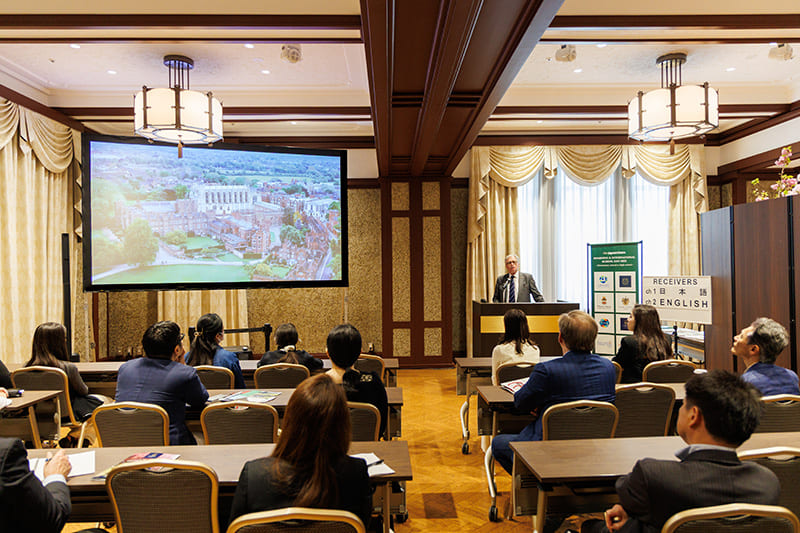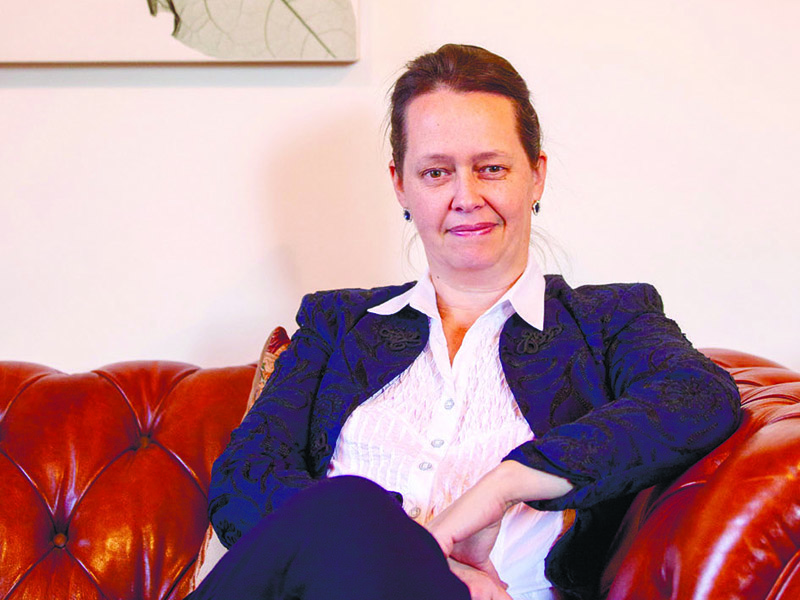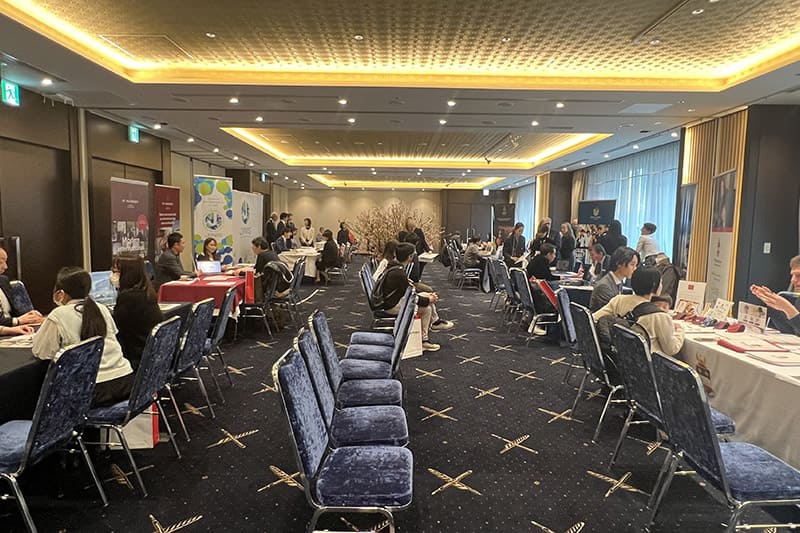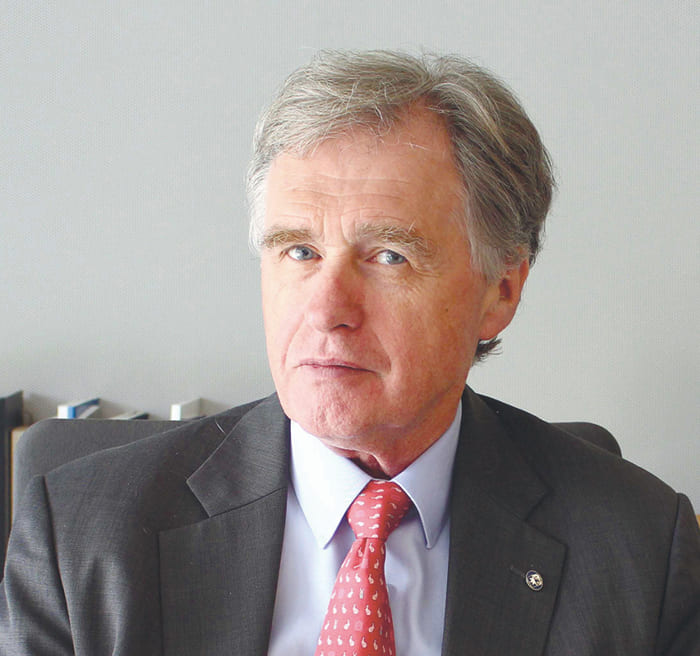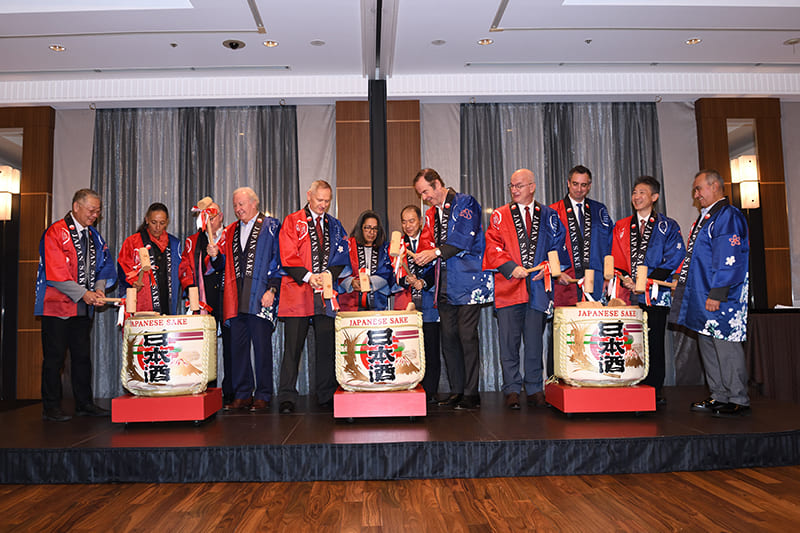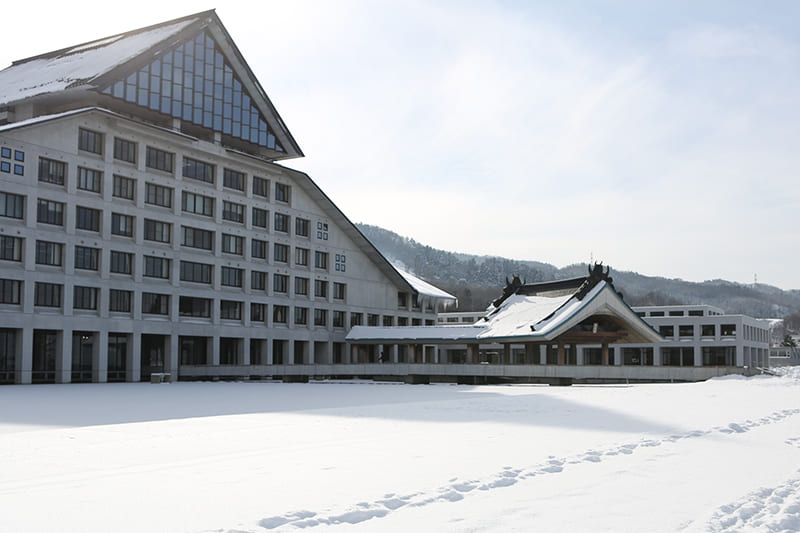August 25, 2025
Raising international preschools in Tokyo and beyond
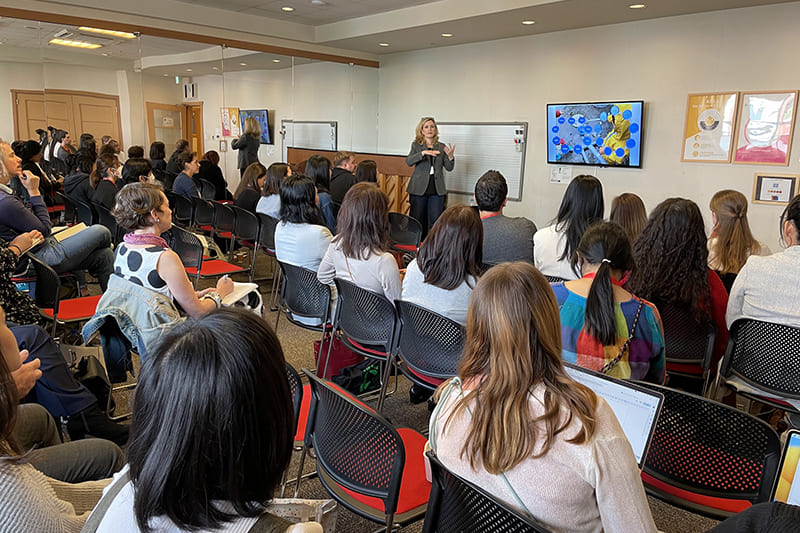
Kenn Gale first arrived in Japan 12 years ago, contracted to help open an international preschool. After working across Southeast Asia, he thought Japan might be a temporary stop. Instead, it became home. He met his wife and started a family. Settling down produced a strong pull to become more engaged in the local community. Now, as a leader in early childhood education and the father of three young children, Gale approaches his role as the president of the Tokyo Association of International Preschools with a strong sense of commitment to building stronger solidarity among other hard-working professionals who dedicate their lives and careers to early childhood education.
TAIP’s story began in the early 2000s, recalled inaugural President Steven Parr, “when two preschool directors approached me with the idea of creating an organization specifically for preschools in Tokyo. I was known for being active in the Japan Council of International Schools (JCIS), an exclusive organization for the Heads of member schools, and for being active in Japan ASCD, which offered annual workshops for teachers from the JCIS and DoDDs schools, but not much for preschools in particular. I thought the idea was great. A committee was constituted and the organization was born.”
Over two decades later, current president Ken Gale has served as president of TAIP since 2022. Over the past three years, he has helped guide the organization toward a path of innovation and closer connections. He balances building on TAIP’s history while also responding to the current realities of the declining birthrate and its impact on early childhood education. His focus is on deepening TAIP’s strengths, refining its operations and ensuring that the organization continues to provide essential value to schools, educators and the broader community it serves.
His path to TAIP leadership began when the former president recommended him for the role. Gale was drawn to the association’s collaborative spirit, the genuine camaraderie among its members and the opportunity to learn from and contribute to a network larger than any single school.
Widening reach
One of Gale’s main priorities as president has been ensuring that TAIP brings value to each of its membership categories. The association began as a network of schools within Tokyo. Over the past two decades, it has expanded to include over 60 member schools. Institutional members are the schools based in Tokyo, and they remain the majority of the organization. Satellite members are schools in other parts of Japan, and associate members are businesses and organizations that support the international early childhood education community with products, services, or expertise. Satellite and associate members add diversity and allow the organization to widen its reach.
Gale began his TAIP journey as part of a satellite school. That perspective gave him an appreciation for the challenges of schools outside the city center and reinforced his belief that TAIP’s value should not be determined by geography or size. He feels strongly that institutional, satellite and associate members should all have the opportunity to benefit from TAIP’s network, resources and professional development.
Gale aims to continue broadening membership across all membership types. He sees word of mouth as TAIP’s most powerful growth tool; schools join and stay because they see real value and results.
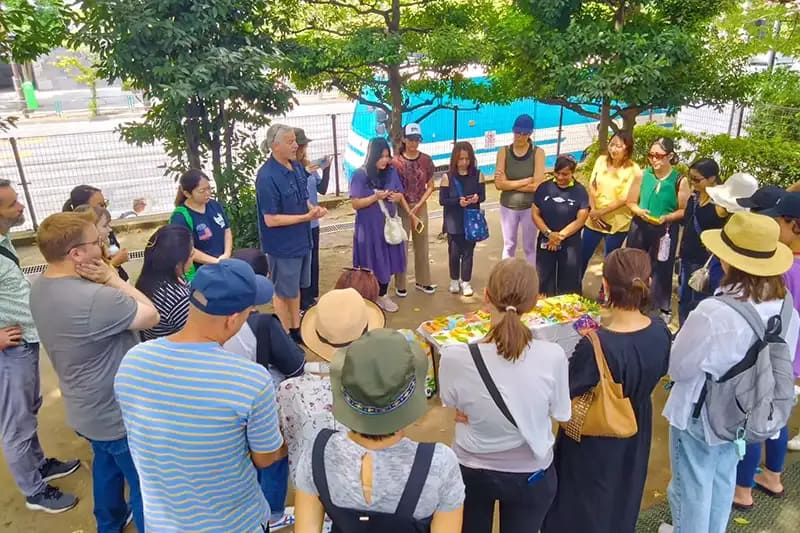
Professional development
Professional development has always been one of TAIP’s most valuable contributions to its members, and Gale has worked hard to strengthen this side of TAIP. Before the pandemic, TAIP’s main event was the annual October conference, which featured international speakers that TAIP flew in and drew several hundred attendees. The pandemic forced this gathering to change its form. The organization also embraced online learning, for better or worse. This has presented new opportunities and has provided members with more convenient channels to meet and exchange information.
Under Gale’s leadership, TAIP embraced Zoom as a platform for workshops and seminars, with some sessions drawing over 200 participants. The switch to online meetings has allowed the association to continue hosting excellent speakers from around the world and deliver the same content at a significantly lower cost. Because most teachers who work with younger learners have a genuine passion for their field, there has been enthusiastic support and participation.
For the coming term, Gale envisions a hybrid model that combines the irreplaceable and human value of in-person conferences with the accessibility and efficiency of online seminars. TAIP can continue to serve teachers and leaders in a way that is both flexible and impactful by offering more and more year-round professional development opportunities.
Communication, transparency
Another key theme of Gale’s presidency has been communication. TAIP already provides leadership-level seminars and open discussions through monthly directors’ calls. It also provides classroom-level support through professional development workshops. While these forums run like a well-oiled machine, Gale recognizes that the organization can always do more to improve transparency and clarity.
During Gale’s term, TAIP has worked to strengthen messaging around what members can expect, what their dues support and how board-level decisions are made. He aims to continue increasing transparency while also raising TAIP’s external profile, and said it can enhance its reputation and cement its role as a central hub for early childhood education in Japan by spotlighting member schools and promoting the work of the association more broadly.
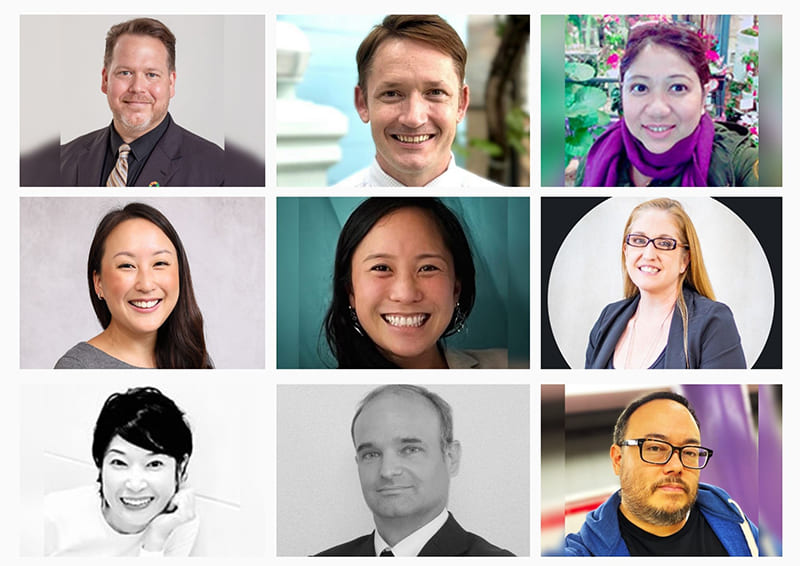
Support amid challenges
International preschools in Japan face an increasingly complex and competitive landscape. The declining birth rate is leading to smaller student populations even as more international schools open up and scholarships make them more accessible. Navigating these changes requires adaptability and shared knowledge.
Gale believes TAIP plays a critical role in supporting schools through these challenges. By facilitating information sharing, offering leadership-level business support and providing professional development for educators, TAIP seeks to be part of the solution. In many cases, schools, especially smaller ones or those without extensive internal infrastructure, rely on TAIP for guidance on everything from compliance questions to basic operational challenges. Gale sees strengthening this support system as one of the association’s most important responsibilities.
Fostering collaboration
Under Gale’s leadership, TAIP has continued to emphasize the importance of collaboration across schools. The monthly directors’ calls provide time and space for leaders to discuss challenges across the organization. He recalled instances where new leaders were brought in from other countries and had no guidance to help them understand the exact scope of their role and the extent of their authority. There are also teacher-focused workshops that aim to address challenges in the classroom. These sessions build professional skills and help foster a sense of solidarity in what can be an underappreciated profession.
Looking ahead, Gale wants to encourage even more communication by modernizing digital systems, making resources more accessible and creating more opportunities for associate members to contribute.
Refinement and goals
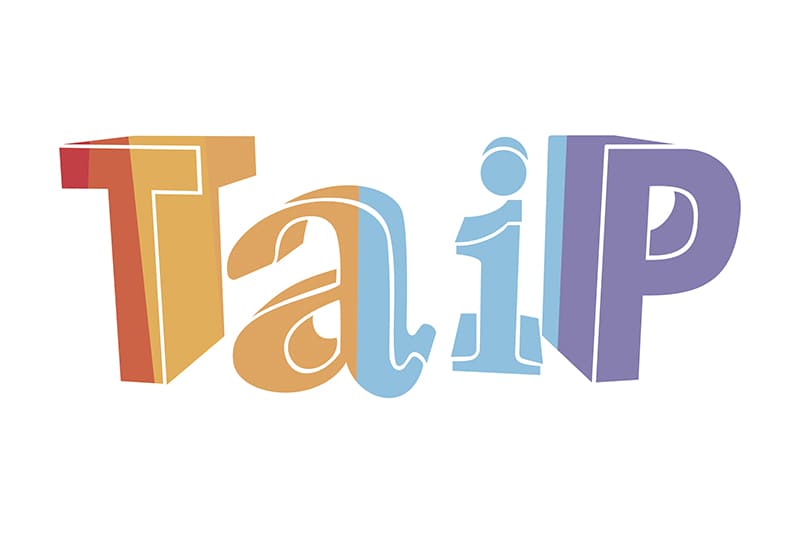
Gale sees TAIP as having a strong mission and community but acknowledges that operational systems can be improved. During his presidency, the board has begun fine-tuning back-end logistics, with plans to modernize the website, registration processes and communication tools. There is also discussion about formalizing TAIP’s status as a nonprofit, a step that could strengthen its credibility but isn’t necessary to its day-to-day operations.
He is particularly focused on ensuring that associate members, who contribute resources and sponsorship, see clear returns on their investments. For TAIP to grow sustainably, these members must see the impact their investments have on early childhood education and clear improvements within the organization.
As president, Ken Gale has guided TAIP through a transformative period marked by adaptation, resilience and renewed growth. He views TAIP as an essential resource for schools and educators navigating the unique challenges of early childhood education in Japan. Looking ahead, he hopes to strengthen what TAIP already does well while fine-tuning its systems to meet the demands of the next generation. He sees TAIP as an organization that will continue to be inclusive, resilient and ever more connected — one that continues to raise the quality of international preschool education in Tokyo and beyond.
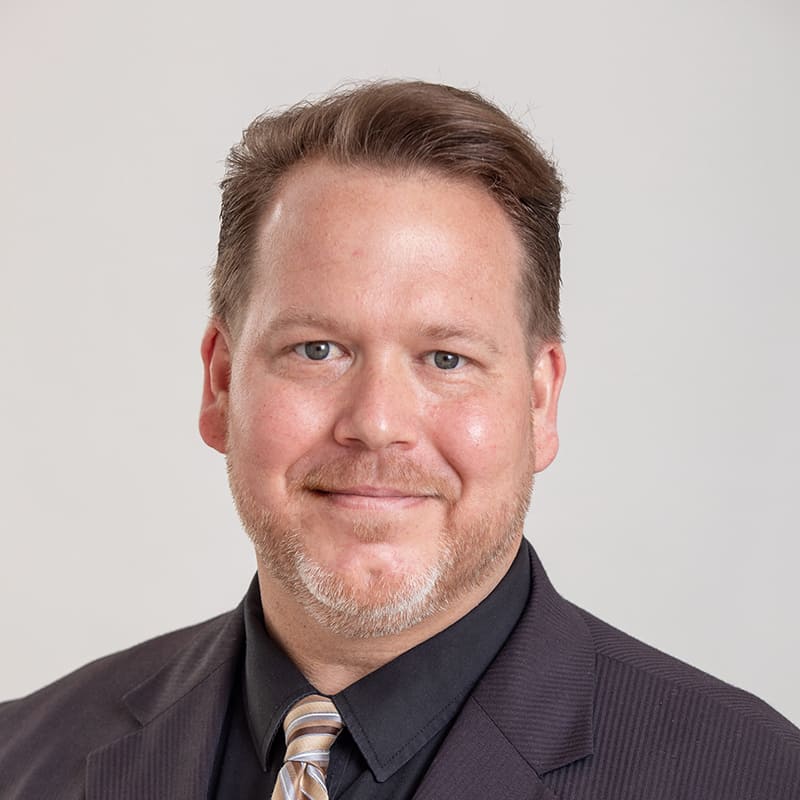
For more information please visit https://www.tokyopreschools.org/

